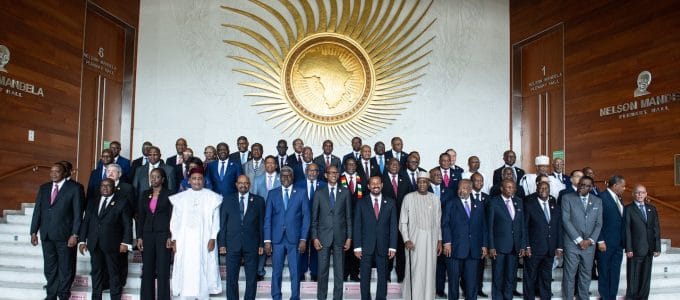
The Extraordinary Summit of Heads of State and Government of the African Union, dedicated to the institutional reform of the Union ended this 18 November 2018 in Addis Ababa. Here are the main decisions and a few personal reflections by former INCLUDE platform member Désiré Assogbavi on how change may happen in the African continent.
Adopted New Structure & Portfolios for the African Union Commission
The new structure of the AU Commission will be as follows:
- Chairperson of the AUC
- Deputy Chairperson of the AUC
- 6 Portfolios/Commissioners as follow (instead of 8 previously)
- Agriculture, Rural Development, Blue Economy and Sustainable Environment;
- Economic Development, Trade and Industry and Mining
- Education, Science, Technology and Innovation;
- Infrastructure and Energy;
- Political Affairs, Peace & Security;
- Health, Humanitarian Affairs and Social Development
The change mainly includes the following:
- Merging of Political Affairs and the Peace and Security Departments. The Humanitarian Division previously under Political Affairs moves to the Social Affairs Department renamed.
- Merging of Economic Affairs and the Trade & Industry Departments with addition of Mining.
- Human Resource, Science and Technology Department is renamed as Education, Science, Technology and Innovation
- Blue Economy and Sustainable Environment added to Agriculture Rural Development Department
This new structure will come into effect at the end of the current tenure of the AU Commission in 2021.
Important principles to guide the selection process of the senior leadership of the Commission:
- Equitable regional representation and gender parity;
- Predictable inter and intra-regional rotation following the English alphabetical order to be applied to each senior leadership position
- Attracting and retaining Africa’s top talent;
- Accountable and effective leadership and management;
- Transparent and merit-based selection;
- The principle of rotational gender parity shall be applied to the posts of Chairperson and Deputy Chairperson; ensuring that if the Chairperson is male then the Deputy Chairperson shall be a female and vice versa.
The Mandate of the African Union Development Agency – AUDA (Transformed NEPAD) adopted as follows:
- To coordinate and execute priority regional and continental projects to promote regional integration towards the accelerated realization of Agenda 2063;
- To strengthen capacity of African Union Member States and regional bodies; advance knowledge-based advisory support, undertake the full range of resource mobilization, and serve as the continent’s technical interface with all Africa’s development stakeholders and development partners.
The Assembly called for the conclusion of a permanent Host Country Agreement for the African Union Development Agency (AUDA) with the Government of South Africa.
Reform of the African Peer Review Mechanism (APRM)
- APRM budget to be integrated in the statutory Union budget funded by Member States: This will bring the institution to a more financial stability but may also incite more member states to join it.
- APRM capacity to be strengthen in collaboration with the African Governance Architecture and its functional autonomy enhanced to deliver on its extended mandate,
- APRM to present an update on the State of Governance in Africa and to report to the 32nd Ordinary Session of the Assembly scheduled to take place in February 2019.
An ongoing process
This reform is an on-going process. More and more organs of the Union will be reviewed as we move and the process will surely not stop with the end of President Kagame’s tenure as Chairperson of the Union in January 2019. He will remain the champion of the reform and the issue is likely to remain on the top of AU agenda given the large principle adherence of member states to the reform agenda, despite the divergence of opinion on the How…
In the end, the refocusing of the AU to a few continental issues, wanted by President Kagame has not happened. We only see a restructuring/reshuffling of portfolios… Now it is important to leverage the principles of subsidiarity, complementarity and comparative advantage while discussing the division of labor with the Regional Economic Communities.

How will change happen in Africa?
My personal view here is that, the restructuring of the Commission and other organs of the Union, to better deliver on their mandates, and the adoption of performance based management principles are excellent steps ahead. However, African people’s life can be really impacted only, if the adopted decisions, standards and values are effectively implemented at national level by member states. For this to happen, there is a need for an effective accountability mechanism to be handled by a strong, empowered and capacitated AU Commission and relevant organs vis a vis member states in transparent and objective manners… and as I pointed it out in my previous blog, a sanction regime for the non-implementation of African Union decisions at national level is still the missing element in the reform agenda. It should be discussed soon. The overall rate of implementation of AU decisions at national level is below 15% according to various reports… We should fix this by all means in order to get to the Africa we want.




